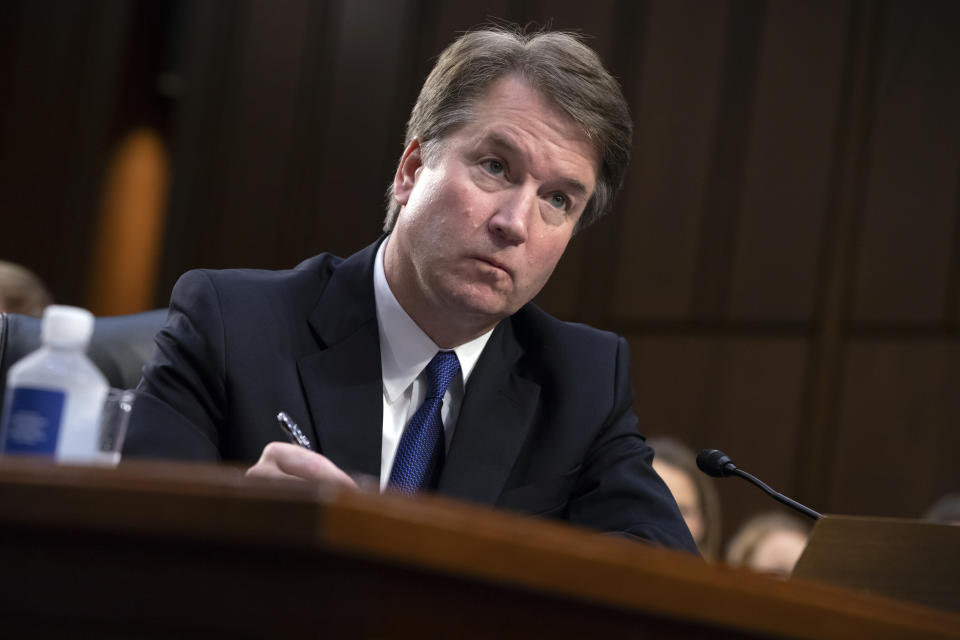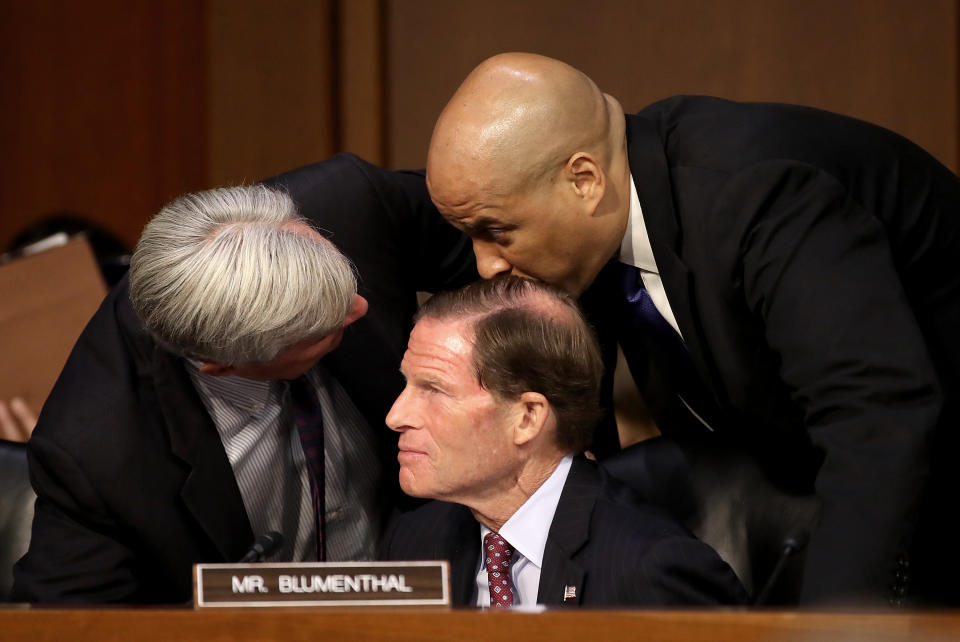Democrats may question Kavanaugh’s personal finances
WASHINGTON — As Brett Kavanaugh enters his second day of contentious confirmation hearings for his nomination to the Supreme Court, he could face questions about his finances — on subjects ranging from baseball tickets to the down payment for his home.
In a little-noticed letter dated Aug. 30, Sen. Richard Blumenthal of Connecticut raised a series of questions about Kavanaugh’s financial disclosure, including several years of large credit card balances maintained during his time as a judge on the D.C. Circuit.

In July, the White House told the Washington Post that these balances were a consequence of Kavanaugh incurring large debts — tens of thousands of dollars — to purchase Nationals season tickets for a group of friends, who later paid him back, as well as home improvements. Blumenthal’s letter asks Kavanaugh for details about both types of expenditures, including identifying the group of friends he bought tickets for.
In his recent financial disclosure reports, Kavanaugh reported that the credit card debt and a separate loan against his retirement account, known as a Thrift Savings Program, have been repaid in full. However, the source of the funds used to repay these debts is unknown. Kavanaugh says, via the White House, he finally received reimbursement for the season tickets from his friends, but it’s unclear how he managed to pay back the loan and the debt arising from home improvements.

The inquiries into Kavanaugh’s personal finances, however, extend well beyond those previously reported issues; Blumenthal also asks:
How did Kavanaugh manage to come up with the down payment on his $1.2 million home in Chevy Chase, Md., in 2006 without apparently drawing any significant amount of money from his reported bank accounts between 2005 and 2007?
A down payment on the home in the range of 10 to 20 percent would, of course, have required Kavanaugh to put down between $120,000 and $240,000 in cash. Through 2005, 2006, and 2007, however, Kavanaugh reports a range of $10,000 to $50,000 in his bank accounts.
Why did Kavanaugh’s bank account balances at least double between 2008 and 2009, rising from a disclosed range of $15,000 to $50,000 in 2008 to a range of $100,000 to $250,000 in 2009? Non-investment income included on the disclosure reports only lists an honorarium from Harvard in an amount insufficient to explain the change.
How does Kavanaugh pay his initiation and membership fees to his country club? That club, the Chevy Chase Club, describes itself as “a distinctive social institution that, since 1892, has provided members, their families and guests with recreation and refuge from the stresses of daily life in the environs of our nation’s capital.”
Why doesn’t Kavanaugh list a 2014 delayed cost of living adjustment given to all federal judges (approximately a $150,000 lump sum in Kavanaugh’s case) as income?
Why did Kavanaugh claim an exemption and refuse to list gifts and reimbursements on his 2018 report for this Supreme Court nomination? (It’s unclear what the basis of the exemption was, and Blumenthal asks him to itemize gifts notwithstanding the claimed exemption.)
Is it accurate that neither Kavanaugh nor his wife own any investment securities outside of their retirement accounts?
The White House sent a brief response on Sunday that did not respond to the substance of any of these questions.
“On September 4, 2018, Judge Kavanaugh will appear before the Committee on the Judiciary,” wrote Shahira Knight, a legislative affairs aide to President Trump. “This hearing will provide you and other members of the Committee an opportunity to ask questions, including the questions detailed in your letter.”
Notwithstanding the White House’s response, Maria McElwain, Blumenthal’s spokeswoman, declined to confirm that he would raise financial issues while questioning Kavanaugh at the hearing. “Senator Blumenthal has said that he’s not going to discuss what specific topics he plans to raise during the Q&A ahead of time,” she wrote, “but the issues he raised in this letter are certainly among those that he’s interested in following up on.”
_____
Read more from Yahoo News:
Top Dem Swalwell: Exiting White House counsel McGahn coached aides on testimony
Un-Borkable: Kavanaugh heads into confirmation hearings on cruise control
Former presidents pay homage as McCain takes his place in history
Cory Booker is on the campaign trail, but not in the way you might think
Photos: Confirmation hearings for Brett Kavanaugh begin with protests


